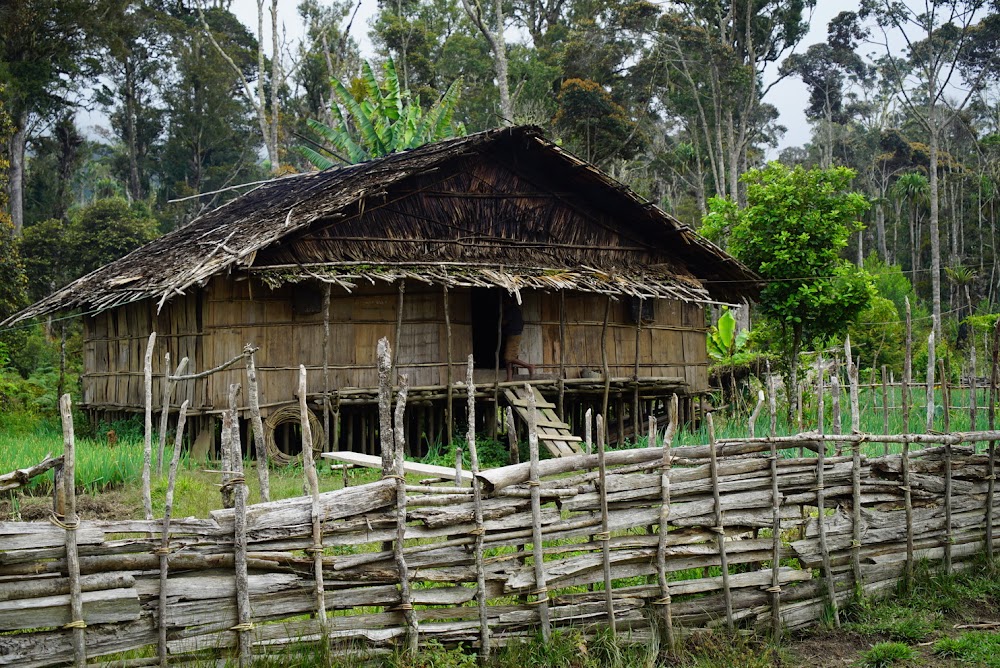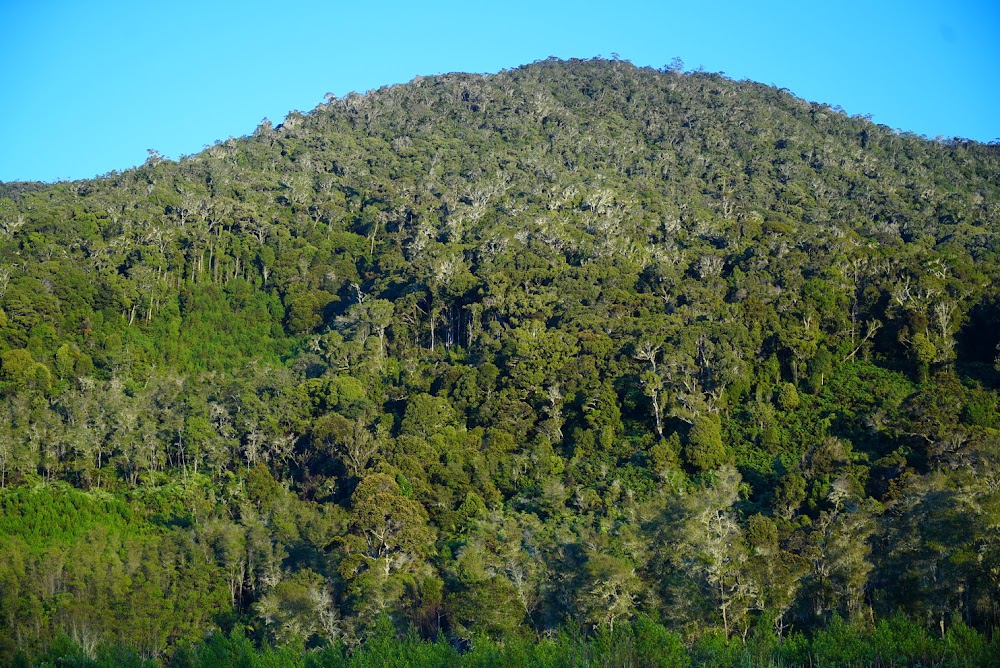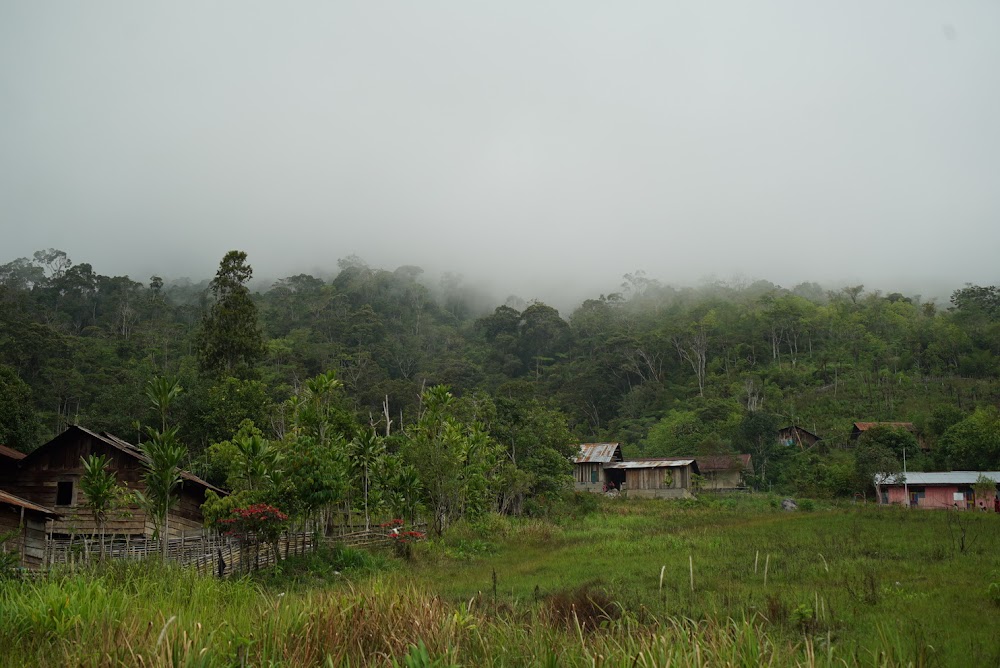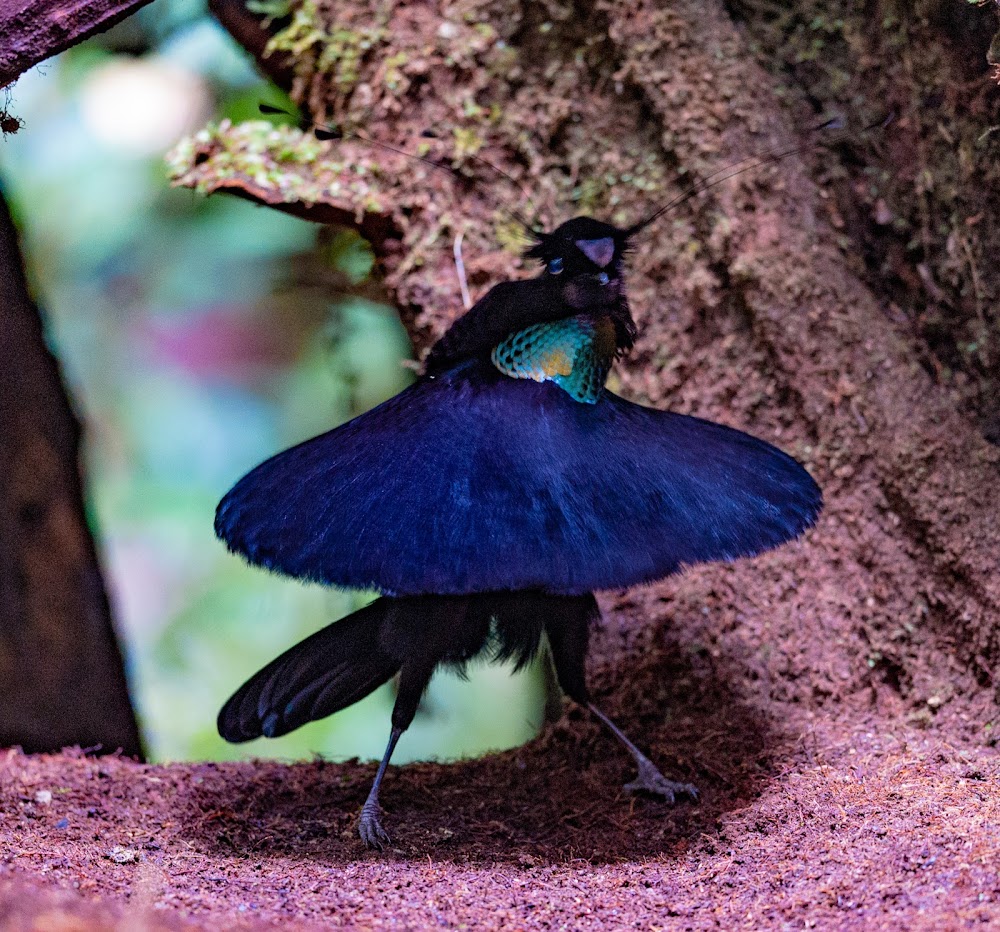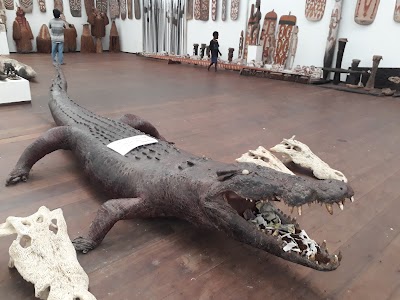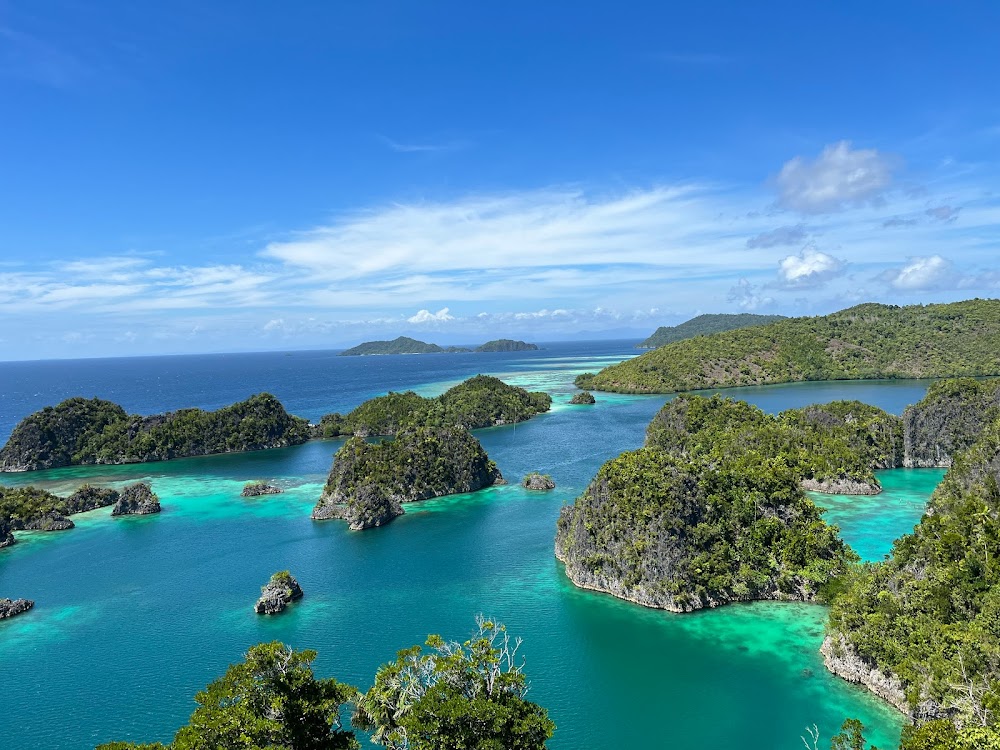Arfak Mountains (Pegunungan Arfak)
Overview
The Arfak Mountains, located in Papua Barat, Indonesia, present an awe-inspiring landscape that captivates all who venture here. Just 25 kilometers from the coastal city of Manokwari, these mountains rise dramatically from the surrounding lowlands, showcasing one of the region's most spectacular natural features. The highest peak, Mount Arfak, towers at an impressive elevation of approximately 2,940 meters, offering breathtaking views and a sense of adventure for hikers and nature enthusiasts alike.
The formation of the Arfak Mountains is a fascinating tale of geological forces at work over millions of years. The area's tectonic activity is particularly dynamic, as the Pacific and Australian tectonic plates converge here. This collision has sculpted the mountainous terrain we see today, pushing the Earth's crust upward to create towering peaks and deep valleys that define the landscape.
The tropical rainforests enveloping the mountains are a treasure trove of biodiversity. These lush forests thrive in the humid, rain-soaked climate, featuring tall trees that form a dense canopy above. Beneath this green expanse, a rich assortment of ferns, orchids, and other plant species flourish, many of which are endemic—meaning they can be found nowhere else on Earth. The Arfak Mountains are truly a sanctuary for nature lovers and researchers alike.
Wildlife in the Arfak Mountains is equally captivating. Among the unique inhabitants are the Vogelkop bowerbird, renowned for its intricate courtship displays that involve constructing elaborate "bowers" to attract mates, and the Western Parotia, famous for its stunning dance performances. The region is also home to a dazzling array of butterflies, with many brightly colored species fluttering through the forest, adding to the vibrant atmosphere of this biodiverse haven.
The indigenous Arfak people have called these mountains home for centuries, fostering a profound connection with the land that sustains them. Their sustainable lifestyle includes hunting, gathering, and small-scale farming, showcasing their intricate knowledge of local flora and fauna, often utilizing plants for medicinal purposes. The Arfak people also engage in traditional crafts, such as weaving and carving, reflecting their rich cultural heritage.
Culturally, the Arfak Mountains are as vibrant as their natural environment. The Arfak people celebrate a range of festivals and ceremonies, characterized by lively music, dance, and colorful costumes. One significant tradition is the "Men's House" (Rumah Kaki Seribu), a communal space where important village decisions are made and cultural knowledge is passed down through generations, highlighting the community's deep-rooted values and practices.
In recent years, the Arfak Mountains have emerged as a popular eco-tourism destination, attracting visitors from around the globe eager to experience the stunning scenery, explore its rich biodiversity, and engage with the unique culture of the Arfak people. Well-established trekking routes invite travelers to navigate the rugged terrain, offering opportunities to visit remote villages and pristine natural areas, ensuring an immersive experience in this remarkable region.
Conservation efforts to protect the natural beauty of the Arfak Mountains are ongoing, with environmental organizations—both local and international—collaborating with the Arfak people to safeguard the forests from deforestation and unsustainable practices. These initiatives aim to preserve the area’s unique ecosystems for future generations while supporting the traditional way of life of its communities.
In essence, the story of the Arfak Mountains is one of natural splendor, cultural richness, and environmental resilience. It celebrates the intricate interplay between the land, its wildlife, and the people who call it home. By learning from and protecting this extraordinary landscape, the Arfak Mountains stand as a testament to the wonders of the natural world, inviting all to explore and appreciate their profound beauty.


